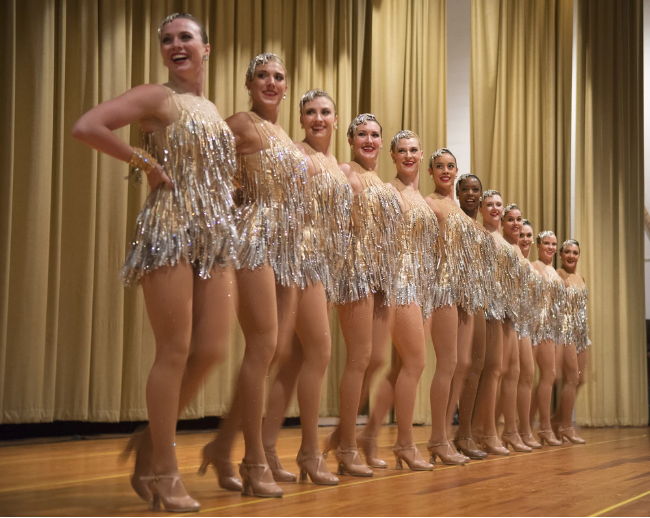After a long award season, the Academy Awards premiered March 10th. The ceremony closed out a historical year for great cinematography, acting, writing, directing, and creative excellency.
Studio Ghibli’s The Boy and the Heron won Best Animated Feature Film, beating nominees including Elemental and Spider-Man: Across the Spider-verse. Despite the category often being written off as movies for kids, Studio Ghibli director Hayao Miyazaki’s films exemplify the breaking of boundaries in animation. This is the second film of Miyazaki’s to win in this category, the first being Spirited Away in 2003.
Wes Anderson’s first Oscar came with his win for Live Action Short Film, being esteemed for The Wonderful Story of Henry Sugar.
But the night wasn’t only marked for firsts: Billie Eilish won her second Oscar for her Best Original Song, “What Was I Made For?”, created for Barbie. Eilish’s award remained the one and only win for Barbie of the night.
The witty film writing of the year did not go unrecognized in the screenplay categories—Anatomy of a Fall’s writers Justine Triet and Arthur Harari won Best Original Screenplay, while American Fiction’s writer Cord Jefferson won Best Adapted Screenplay.
The competition for what movie could win the most awards was most evidently seen between Christopher Nolan’s Oppenheimer and Yorgos Lanthimos’ Poor Things. Oppenheimer won seven Oscars this season, including Film Editing, Cinematography, Original Score, and Best Picture. Nolan was also recognized with his Oscar in Best Directing. Poor Things brought home four Oscars, winning three in-a-row: Makeup and Hairstyling, Costume Design, and Production Design.
The Zone of Interest, a historical drama about a family living next to Auschwitz in Nazi Germany, won two awards as well: Best International Feature Film and Best Sound. During the director Jonathan Glazer’s acceptance speech, he condemned the violence happening in Gaza. “All our choices were made to reflect and confront us in the present,” Glazer stated, “not to say look what they did then, rather look what we do now.” He continued by stating the film is a demonstration of where dehumanization leads. “Right now we stand here as men who refute their Jewishness and the Holocaust being hijacked by an occupation which has led to conflict for so many innocent people,” he said. The outfits of many celebrities on the red carpet were notably dotted with pins of the Palestinian flag and pins from the organization Artists4Ceasefire.
Before recognizing the main acting awards of the night, it is good to look back on some of the talent that went uncelebrated this year. The romance drama film Past Lives went unrecognized in several categories for directing (Celine Song) and acting (Greta Lee and Teo Yoo), and did not win any awards in its nominated categories, including Best Original Screenplay.
Barbie’s director Greta Gerwig and its star Margot Robbie were also not nominated in their respective categories. In an interview with Time Magazine, Gerwig was still positive, however, focusing more on her nomination for Best Picture.
The talent of Julianne Moore, Natalie Portman, and Charles Melton in May December went seemingly ignored, with several magazines calling out Melton’s snub for Best Supporting Actor in his heart-wrenching breakout performance. As for Sofia Coppola’s Priscilla, an adaptation of Priscilla Presley’s memoir Elvis and Me, the film went completely unrecognized with zero nominations.
Nevertheless, the Oscars managed to recognize some stellar performances. Da’Vine Joy Randolph won Best Supporting Actress for her role in The Holdovers with Paul Giamatti and Dominic Sessa. She has also won a Golden Globe, Critics’ Choice Award, BAFTA, and Independent Spirit Award for her role.
Robert Downey Jr. won his first Oscar for his portrayal of Lewis Strauss in Christopher Nolan’s Oppenheimer. He notably beat out Ryan Gosling and Mark Ruffalo. And almost inevitably, Cillan Murphy won his first Oscar for the title role in Oppenheimer.
In a surprise to many, Emma Stone won her second Academy Award for her role as Bella Baxter in Poor Things, despite Lily Gladstone being the forerunner for her performance in Martin Scorcese’s Killers of the Flower Moon. Gladstone made history with her nomination for Best Actress, becoming the first Native American to be nominated in that category. In Stone’s acceptance speech, she said that she shared the award with all her fellow nominees, including Gladstone: “I am in awe of you.”
As always, the Academy Awards has created both celebrations of talent and arguments stemming from dissatisfaction over winners. Whether satisfying or not, the Oscars closed out the year of film excellency, with major box office successes and mesmerizing storytelling. This year’s cinema might just become classics in the future.








![[135711_1678] by [Walt Disney Television] is licensed under [CC BY-ND 2.0]](https://flhsprospect.com/wp-content/uploads/2025/01/14048814959_0bd7dbdacb_o-1200x800.jpg)